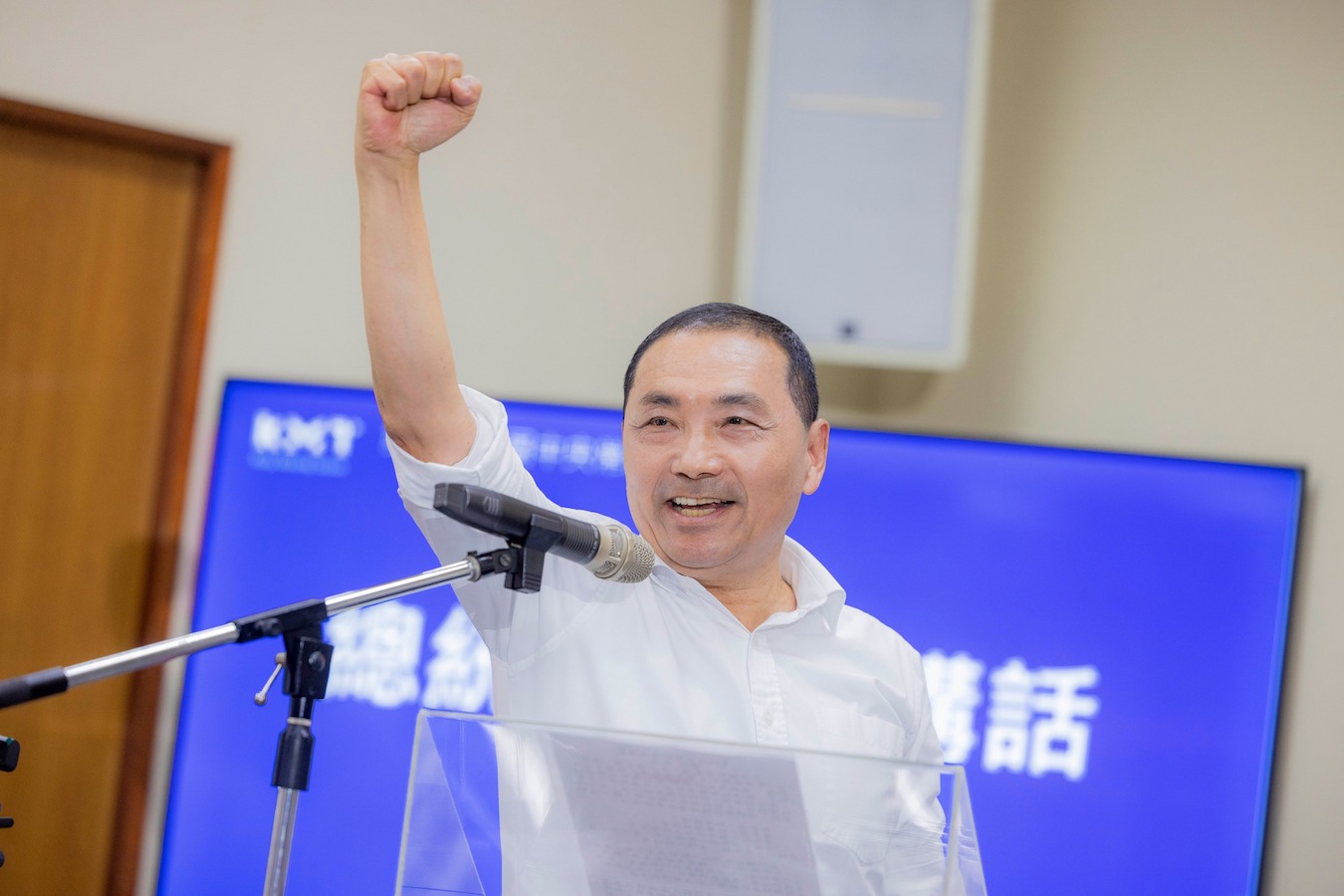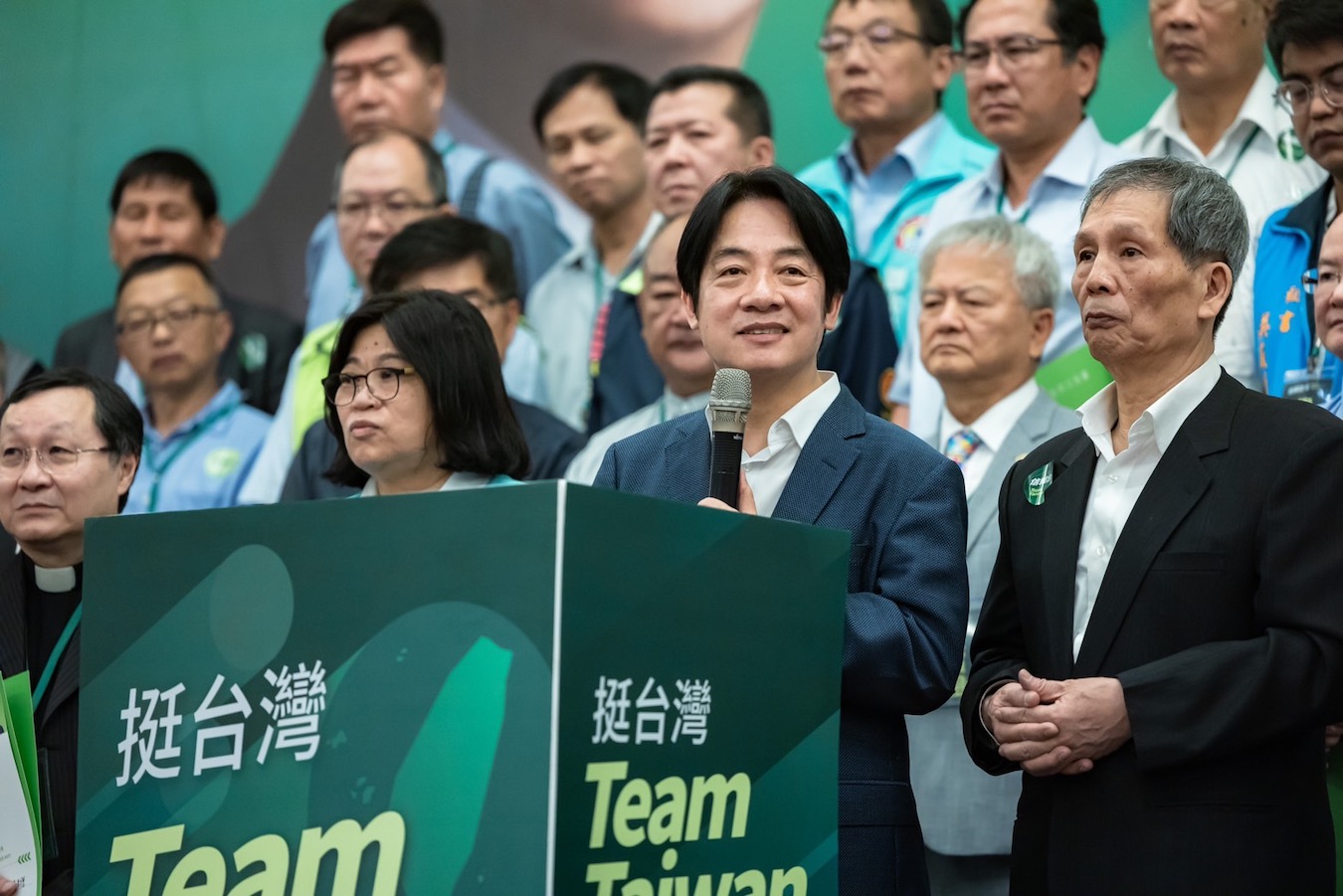by Brian Hioe
語言:
English
Photo Credit: othree/Flickr/CC BY 2.0
ME TOO-STYLE sexual harassment allegations continue to embroil Taiwan. Accusations remain mostly centered on the political world, though there have been accusations more related to the academic or art worlds.
The wave of allegations began after a viral post on Facebook from a former DPP party worker. In particular, the post cited the depiction of sexual harassment in the hit television drama Wave Makers, which focused heavily on the issue of sexual harassment, assault, and related issues such as revenge porn in political parties. Although Wave Makers depicted its protagonists as members of a fictionalized version of the DPP, which is shown as having internal issues regarding cover-ups of sexual harassment, the show suggested that this was also the case with its KMT analog.
After the initial viral post, multiple allegations of sexual assault or harassment were made in the DPP. Within a few days, there were more than half a dozen accusations regarding the DPP. Unsurprisingly, this was seized on by the KMT in order to attack the DPP.
 Promotional image for Wave Makers. Photo credit: Wave Makers/Facebook
Promotional image for Wave Makers. Photo credit: Wave Makers/Facebook
Eventually, it came to light that the two scriptwriters of Wave Makers had worked in the DPP or had family ties to DPP politicians. As such, some of the incidents of sexual harassment that later emerged from within the party were in fact used as the source material for the show.
It proved to be more than just the DPP that became implicated in such allegations, however, after Chinese dissident and former Tiananmen Square student leader Wang Dan was accused of sexual assault in an incident that dated to 2014.
Wang doubled down on denying this, alleging that the incident was concocted by the CCP in order to discredit him, and stating that he expected further accusations to emerge. Wang stated that he would be willing to face the charges in court, and eventually flew back to Taiwan in preparation to face charges. The alleged victim later did file a lawsuit, though by that time a second accusation of an attempted assault had emerged against Wang. Universities that Wang teaches at have stated that if he is found guilty, following an investigation, he will not be allowed to resume his teaching posts.
Likewise, Chinese dissident poet Bei Ling, was also accused of sexual assault. This accusation came from one of the scriptwriters of Wave Makers. Bei Ling, too, has denied this sexual assault. This proved sensitive timing, seeing as news of the allegations broke only a few days before the 34th anniversary of the Tiananmen Square Massacre.
Subsequently, an advisor to Tsai Ing-wen through the Friends of Xiao-ing Foundation was accused of sexual assault, as was a former director of Control Yuan head Chen Chu’s office. These were among the most high-profile allegations of sexual assault against members of the DPP, with a deputy office director and a deputy secretary-general of the party removed over alleged inaction over sexual assault or having been involved in such acts themselves.
It was to be expected that the pan-Blue camp would eventually come under scrutiny for similar acts, however, even if the KMT tried to frame the issue as one exclusive to the DPP.
Hualien legislator Fu Kun-chi was been among those first accused of sexual harassment from the pan-Blue camp, with allegation against him from a reporter. Fu is generally known as one of the KMT’s most corrupt politicians, with allegations against him of vote buying on the party’s standing committee elections, and with Fu having faced jail stints on corruption charges in the past. Current Hualien county magistrate Hsu Cheng-wei originally took up her current position through Fu naming her deputy county magistrate before a jail stint, so that she could keep ruling Hualien in her stead.
 New Taipei mayor Hou You-yi. Photo credit: Hou You-yi/Facebook
New Taipei mayor Hou You-yi. Photo credit: Hou You-yi/Facebook
Former media executive Albert Tzeng, who later joined the KMT after serving as part of Initium Media, has been another individual to face sexual harassment or assault charges. There are several dozen charges against Tzeng at present. The KMT denies any links with Tzeng at present.
In a similar timeframe, KMT legislator Chen Hsueh-sheng–not to be confused with fellow KMT legislator Apollo Chen, who has a similar name in Chinese–was fined 80,000 NT over sexually harassing DPP legislator Fan Yun during an altercation in the legislature. The timing of the ruling and that it occurred in the midst of this wave of Me Too-style allegations, however, is coincidental.
The KMT-controlled New Taipei city government has come under fire for sexual harassment allegations against a director in the water resources department under the administration of Hou You-yi, the KMT’s presidential candidate.
Hou has also come under fire for a case in which an employee in New Taipei’s Health Department committed suicide after experiencing sexual harassment. Hou has not apologized for the incident.
The Taipei city government, too, has come under fire for several incidents dating back to Ko Wen-je’s mayoral administration. One involves an appointee to the Gender Equality committee of the city that taught at National Chung Cheng University but was implicated in sexual harassment himself. A further incident involves at least six women harassed by the same man at the Taipei city government, including incidents in which this man locked women in the office, as well regarding a safety officer in the Parks and Street Lights Office.
The pan-Blue camp may be more hesitant to push on the issue of the DPP’s sexual harassment and assault cases if it knows that it, too, has skeletons in its closet that will eventually come to light if it pushes too hard on the issue.
Ko Wen-je’s history of misogynistic statements, including body-shaming comments directed at Chen Chu, mocking the work of gynecologists as working with women’s “holes,” and stating that women looked “scary” without makeup may haunt him if his party comes under scrutiny for incidents of sexual harassment or assault.
In turn, the DPP will focus fire on the KMT and TPP to “dilute” the perception of the party as especially prone to being implicated in cases of sexual assault or harassment. This proves similar to how the DPP honed fire on plagiarism incidents among the pan-Blue camp after its Taoyuan mayoral candidate in 2022 elections, Lin Chih-chien, came under fire for having plagiarized his master’s thesis. This eventually made plagiarism into an issue faced by both camps, rather than exclusively by the DPP.
It is to be seen whether this will be successful. Nevertheless, the initial wave of cases against the DPP was perhaps overshadowed by the cases facing Chinese dissidents in media reporting as time went on, even if the initial framing around some of the Chinese dissidents was regarding their links to the DPP.
 William Lai. Photo credit: William Lai/Facebook
William Lai. Photo credit: William Lai/Facebook
It is also to be seen whether the general public finds sincere claims by DPP party chair William Lai and President Tsai Ing-wen apologizing for the incident and promising to make changes to policy in the future. Certainly, one expects politicians of both camps to try and take down opponents by taking advantage of allegations, while boosting their own standing by framing themselves as helping victims seek justice–politicians that raise cases of sexual assault or harassment may not do so purely out of disinterested purposes.
Nevertheless, it is to be seen if the attention of the Taiwanese public stays focused on the issue. After all, Ko Wen-je’s history of misogynistic statements did not prevent him from becoming a leading presidential candidate, and so it is to be seen whether the issue is genuinely one that the public is interested in seeking justice for–or whether it will merely be used as fodder for political attacks between respective political parties.
In a similar timeframe, a series of Facebook groups using the link-sharing service RISU has come under scrutiny because of the use of these groups to spread private photos of individuals, mostly women. This proves similar to previous controversies in Taiwan over Telegrams groups that circulated revenge porn, as well as deep fake videos of public figures operated by the YouTuber “Xiao Yu.” Both incidents, too, drew comparisons to South Korea’s “Nth Room” case. The service claims to be investigating these allegations.

